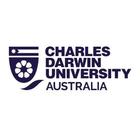Bachelor of Accounting/Diploma of Laws
Bachelor of Accounting/Diploma of Laws
This course provides students with a sound knowledge base in the complementary fields of accounting and law. Students enrolled in the accounting degree can graduate with two qualifications including a Bachelor of Accounting and Diploma of Laws in a three year period when studying a full time load. The Bachelor…
Categories
COURSE DESCRIPTION
This course provides students with a sound knowledge base in the complementary fields of accounting and law. Students enrolled in the accounting degree can graduate with two qualifications including a Bachelor of Accounting and Diploma of Laws in a three year period when studying a full time load. The Bachelor of Accounting includes financial accounting, management accounting, taxation, business law and finance. This vocationally oriented and student-centred course provides students with employment and professional skills needed in a rapidly changing business environment. It allows for flexibility of study and prepares students for careers in a variety of business fields. In addition, communication, presentation and problem solving skills are emphasized. Successful completion of the degree will satisfy the entry requirements of the professional accounting bodies in Australia.
The Diploma of Laws is designed to meet the needs of those seeking an understanding of aspects of law without committing to a full law degree. The object is to provide a flexible course that caters for the diverse interests of potential accounting and law students. The course is designed to enable students to acquire a broad understanding of the legal system, legal processes and some areas of the law. Students will be able to choose from a wide range of law elective units, consistent with their particular areas of interest. The Diploma will be suitable for those who wish to acquire a general understanding of the law and legal principles, and some specialised knowledge, consistent with their employment or other needs. Upon completion of the Diploma, graduates may seek admission to the Bachelor of Laws degree with full credit for units completed under the Diploma program.
Professional recognition
Completion allows graduates to apply for membership of CPA Australia, Chartered Accountants of Australia and New Zealand (CAANZ) or Chartered Institute of Management Accountants (CIMA) (UK).
REQUIREMENTS
Admission requirements are met by one of the following:
Successful completion of the Northern Territory Certificate of Education and Training (or equivalent) and the awarding of an Australian Tertiary Admissions Rank (ATAR) of at least 60.
Successful completion of a national qualification at Certificate III level or higher.
Successful completion of at least 0.5 year of full-time study (or equivalent) of a higher education degree/diploma.
Overseas secondary or tertiary qualifications considered equivalent to the above Australian qualifications.
English language requirements
To gain entry into Charles Darwin University, all Higher Education applicants must satisfy the University’s English Language Proficiency Requirements for their chosen course of study. International applicants will be required to supply evidence of this at the time of application.
CDU English for Academic Purposes 3 (ZEAP30): Successful completion of EAP003 English for Academic Purposes 3
IELTS: A minimum overall score of 6.0 with no band less than 6.0.
Cambridge Advanced English (CAE): A minimum overall score of 169, with no skill below 169.
Common European Framework Certificate of English Proficiency: A minimum overall grade of B2.
Pearson Test of English (PTE): minimum overall score of 50 with no score lower than 50.
TOEFL Internet-based Test (iBT): minimum overall score of 60 and a minimum writing score of 21.
EDUCATIONAL INSTITUTION
Charles Darwin University (CDU) is a truly unique institution, headquartered in the Northern Territory and spanning the whole country with delivery sites in cities like Brisbane, Darwin, Perth, Melbourne and Sydney and regional hubs such as Alice Springs, Katherine and Palmerston. The university’s multi-campus, virtual and online expertise, course profiles, delivery methods, research activities and operation, result from a commitment to the regions in which it operates. At CDU, international students will benefit from the university’s relatively smaller class sizes and a low student-to-teacher ratio that is in the range of one teacher to every 15-20 students. International students have 11 campuses and centres located around Australia where they could be studying, from tropical Darwin, the outback of Alice Springs or in one of Australia’s more famous cities, Sydney. CDU is ranked number four among Australian universities for undergraduate employment outcomes.




